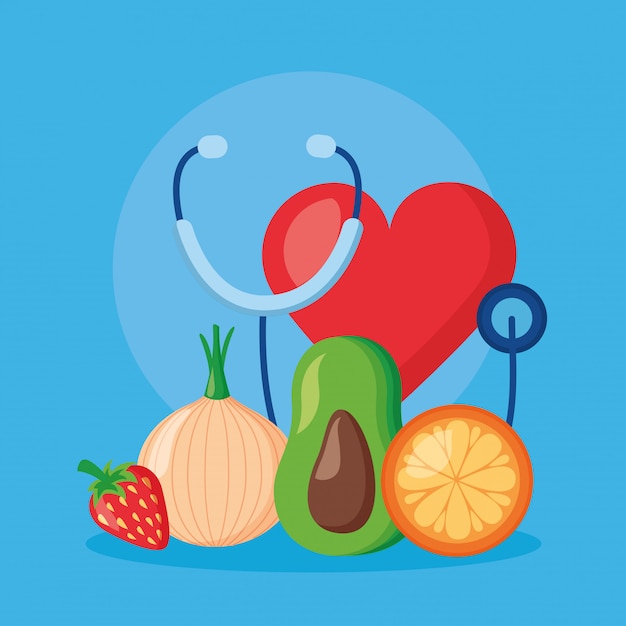
Taking care of your heart is crucial, especially if you’re dealing with high cholesterol. One of the best ways to manage it is by knowing which foods can help lower cholesterol and making some simple changes to your diet. It’s a good idea to consult with your doctor or a nutritionist to find out what’s best for you.
### What to Eat
Here are some of the best foods for lowering your cholesterol:
#### 1. **Foods High in Fiber**
– **Oatmeal**: A daily intake of 5-10 grams of oatmeal can help reduce bad LDL cholesterol. You can pair 1½ cups of oatmeal with a fruit like a banana for about 6 grams of fiber. Look for cereals made with bran or oats to add to your choices—just check the labels to ensure you’re getting plenty of fiber.
– **Beans**: Beans aren’t just great for digestion; they’re also fantastic for lowering cholesterol. Plus, they’re versatile and easy to prepare. Kidney beans, navy beans, black-eyed peas, garbanzos, and lentils are all excellent options, especially if you’re trying to lose weight.
– **Vegetables**: Low-calorie veggies like okra and eggplant are also high in fiber and easy to incorporate into meals.
– **Fruits**: Fruits rich in pectin, a type of soluble fiber, can work wonders for reducing cholesterol. Try citrus fruits, strawberries, apples, and grapes.
– **Fiber Supplements**: If you have trouble meeting your fiber needs through food, you can ask your doctor about quality fiber supplements. While this may not be the most enjoyable option, it’s effective when taken as directed.
#### 2. **Omega-3 Fatty Acids**
– **Fish**: Omega-3 fatty acids are excellent for heart health. Include fish like salmon, tuna, mackerel, trout, sardines, halibut, and herring in your meals. To avoid adding unhealthy fats, bake or grill the fish instead of frying it. Aim for 2-3 servings per week.
– **Other Sources**: Omega-3s can also be found in canola oil and ground flaxseed. Studies show these fatty acids help prevent irregular heart rhythms.
#### 3. **Nuts**
– Nuts are great for combating bad cholesterol, but be mindful of portion sizes and avoid sugar-coated or salted varieties. Stick to plain nuts like almonds, walnuts, peanuts, pistachios, pecans, pine nuts, and hazelnuts.
– A small handful (about 42.5 grams or 1.5 ounces) per day is enough. Overeating nuts can lead to weight gain because they’re calorie-dense, so moderation is key.
#### 4. **Healthy Oils**
– **Olive Oil**: This oil is rich in antioxidants and helps lower bad cholesterol. Stick to about 2 tablespoons (23 grams) per day to maximize its benefits. Extra virgin olive oil is often the best choice.
– **Other Vegetable Oils**: Oils like canola, sunflower, and safflower are also good alternatives to less healthy fats, like lard, butter, and shortening.
#### 5. **Fortified Foods with Stanols or Sterols**
– These plant-based substances block cholesterol absorption. You’ll often find them added to foods like orange juice, yogurt drinks, and certain margarines. Keep your intake limited to 2 grams of stanols or sterols per day. The best part? They don’t interfere with good cholesterol (HDL).
### Lifestyle Adjustments for Lower Cholesterol
While eating the right foods is essential, your overall lifestyle also plays a big role in controlling cholesterol levels. Saturated fats, found in foods like whole milk, full-fat dairy, and red meats, can raise LDL cholesterol. Opt for lean meats, skim or low-fat milk, and healthier fat substitutes like olive oil or vegetable oil margarine.
Avoid trans fats, which are now labeled on most food packages. Look for “trans-fat-free” products while shopping to make better choices.
Eating healthy isn’t enough—you need to combine it with regular physical activity. Exercise helps maintain a healthy weight, which is vital because obesity significantly increases the risk of heart disease. If you’re overweight, focus on shedding some extra pounds for a healthier heart.
### A Few Extra Tips
Reducing cholesterol is a continuous effort, but starting now can help prevent serious issues later. Gradually ease into healthier eating habits, as drastic changes to your diet can be tough at first. It’s normal to experience cravings, but once your body adjusts to a better diet, you’ll feel much healthier.
You don’t need to become a vegetarian to lower your cholesterol. Just focus on eating the right kinds of food, and if possible, keep a list of items to avoid. If you’re unsure about your cholesterol levels, it’s always wise to consult your doctor. Early action can help prevent heart disease and keep you feeling great.
With the right mix of a healthy diet, exercise, and lifestyle changes, you can protect your heart and live a better, healthier life.